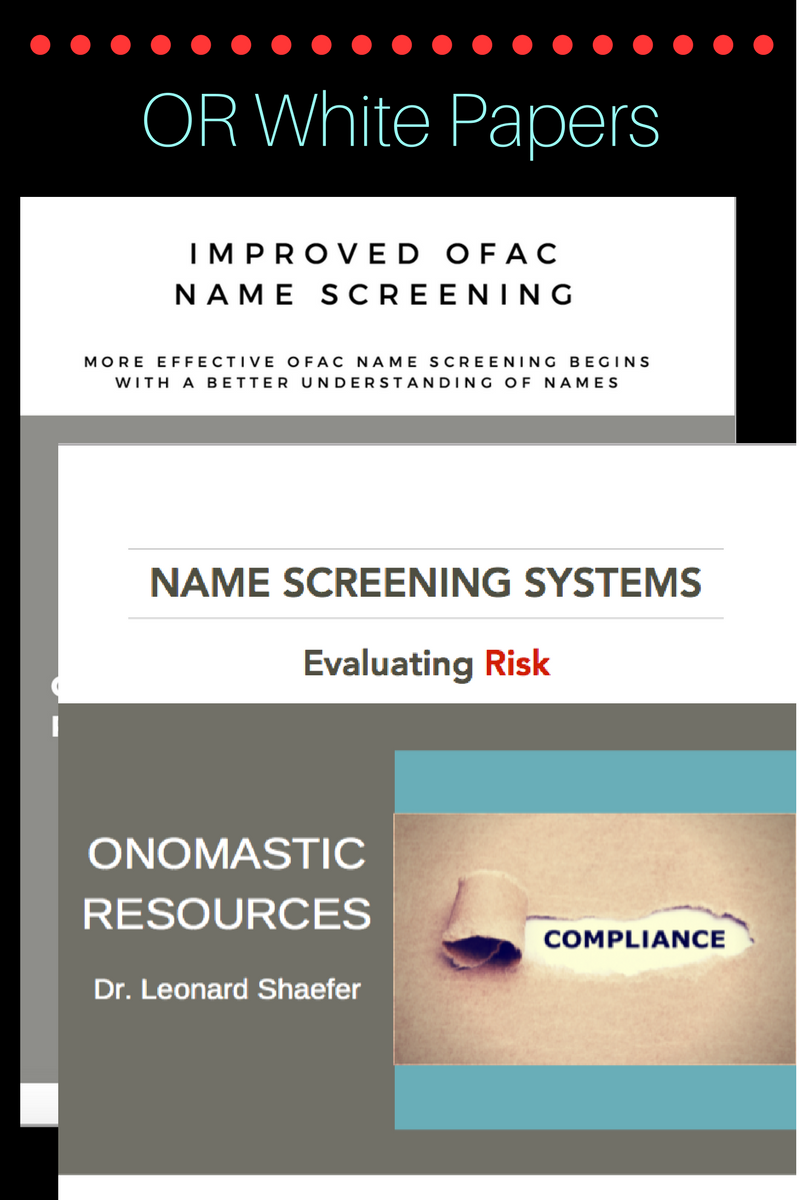Data assets are among the most valuable resources that an organization possesses. Many tools and technologies have been made available in the marketplace in recent years to help organizations exploit these data assets more effectively, in order to advance organizational goals or to gain a competitive advantage. This is the essence of the “big data” trend.
Names, or “named entities” (NEs) as they are known to language specialists, are an exceptionally ubiquitous and valuable part of an organization’s data assets. Transaction-intensive types of organizations (e.g., financial institutions, retailers, border-control agencies, airlines) tend to amass especially large amounts of name-related data.
Getting names right is a central, often crucial aspect of many downstream business decisions, especially for organizations with a strong, persistent requirement for customer identification. Bad or incomplete name data can be a primary cause of bad business decisions: a missed opportunity to reward a loyal customer, an unsold airline seat, a visa issued to an ineligible applicant, a credit account opened for a high-risk individual. Occasionally, in an anti-terrorism context, inefficient name processing has even led demonstrably to disastrous and far-reaching consequences.
In most organizations (especially commercial concerns), name-data assets and the automated processes that act upon them are the province of IT specialists, as are the many other kinds of data that are normally found within an organization. While this is understandable in part, Onomastic Resources considers that it is both insufficient and risky, because IT skills form only part of the qualifications needed to align name-processing most effectively with organizational goals. Put more directly, optimal name-processing is not strictly an IT issue.
Instead, the name assets of any organization are best applied when they are carefully curated by an interdisciplinary group possessing skills and insights from IT, from linguistics and even from the perspective of cultural anthropology. See Name-Centric Processing to learn more about how name processing differs from other types of IT.



